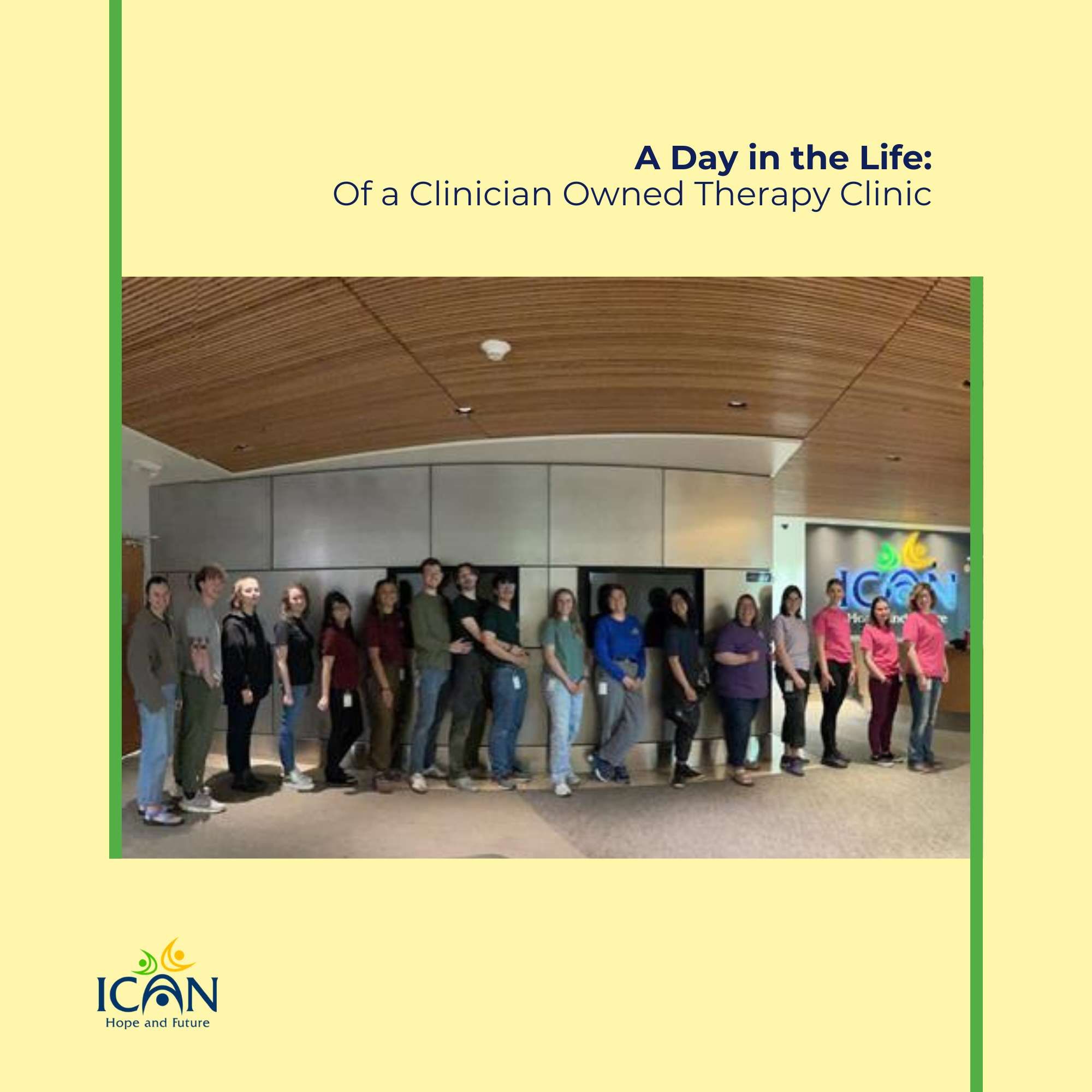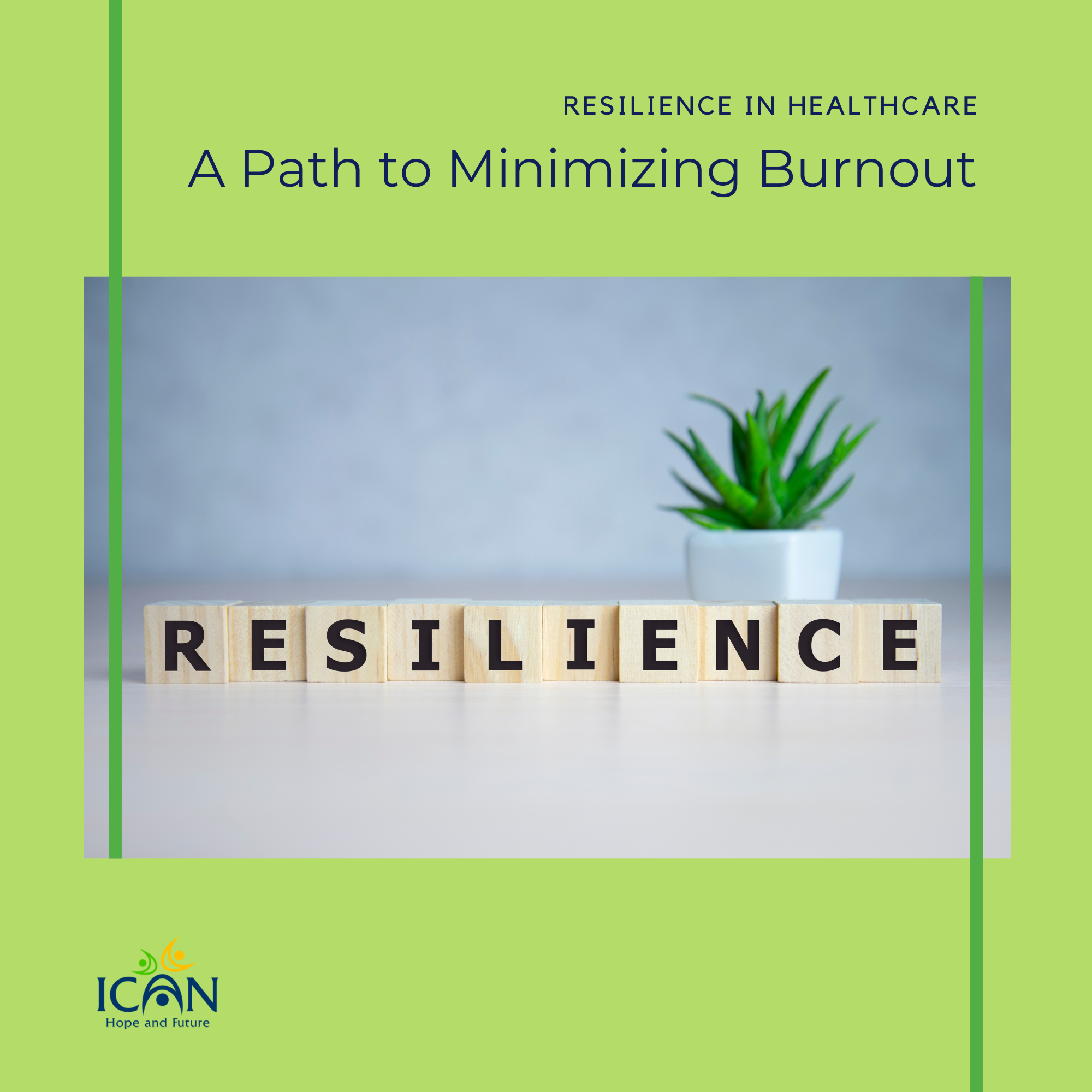

Therapy Frequency: Recommendations or Prescriptions?
Why do therapists recommend the frequency of services the way we do? Let’s talk about how therapy frequency impacts outcomes.

More Than Drop-Offs: How Parent Engagement Transforms Therapy
In pediatric therapy, parent involvement isn’t optional, it’s essential. This blog explores why parent education and buy-in are the foundation of effective therapy outcomes. Learn how empowering parents with the tools, knowledge, and confidence to support their child’s goals at home leads to better skill generalization, stronger family bonds, and faster progress. Whether you’re a parent or clinician, discover practical ways to build collaboration that helps kids thrive across every setting.

It Starts With You: Building Resiliency In Kids
We all want to raise resilient kids—whether we're therapists, parents, or both. But resilience isn’t something children just learn from us… it’s something they see in us.
When we pause instead of react, name our own feelings, and repair after tough moments, we’re not just managing our emotions—we’re modeling emotional strength. And kids pick up on that more than anything we say.
Want to help your child or client regulate, communicate, and cope with life’s ups and downs?
Start by asking: How do I handle mine?
Because the most powerful lessons in resilience start with how we show up.

Keeping Cool (Literally & Emotionally): How to Stay Regulated During Summer Heat
Summer sunshine is fun—until it’s not. When the heat rises, so can our kids’ big emotions (and ours too). For neurodivergent children especially, hot days can turn into sensory overload fast. In our latest post, we’re diving into how summer heat impacts regulation and what families can do to support calm, comfort, and connection during those long, sunny days. With practical tips from OTs and BCBAs, you’ll walk away with easy, family-friendly strategies to keep your cool—inside and out.

Creating Safe Spaces in Pediatric Therapy: The Intersection of LGBTQ Identities and Neurodiversity
Neurodivergent and queer kids often live at the intersection of misunderstanding—and invisibility. As pediatric therapists, we can either reinforce those pressures to mask, or we can create brave, affirming spaces where kids feel safe to show up exactly as they are.
Using inclusive pronouns, honoring body autonomy, and following a child’s lead in therapy aren’t just best practices—they’re acts of allyship. When we teach with curiosity, listen without judgment, and validate identity in all its forms, we send a powerful message: You don’t have to change who you are to belong.

From Isolated to Inspired: How Connection Transforms the Pediatric Provider Experience
Burnout doesn’t always start with exhaustion—it often begins with isolation. At ICAN, we believe no clinician should have to do this work alone. In our latest blog post, we explore the silent toll of professional loneliness and how a truly collaborative culture can change everything.
If you’ve been feeling disconnected in your role, this one’s for you. 💬👇


Trust, Teamwork, and Empathy (Part 2): Improving Pediatric Therapy Team Dynamics
Strong teams don’t just happen-they’re built on trust, understanding, and genuine empathy. In the high-stakes world of pediatric therapy, Brené Brown’s four pillars of empathy can help team members connect, communicate, and collaborate more effectively. This post explores how embracing perspective-taking, nonjudgment, emotional awareness, and mindfulness can improve relationships among colleagues, reduce conflict, and create a supportive workplace where everyone feels valued and empowered.

Trust, Teamwork, and Empathy (Part 1): Compassion Fatigue
While empathy is essential for building trust and collaboration in pediatric therapy teams, it also comes with a hidden cost: compassion fatigue. This emotional exhaustion can quietly creep in when staff members are consistently exposed to the challenges and traumas faced by the children and families they serve. Recognizing the signs of compassion fatigue and supporting one another through open communication, peer support, and mindful self-care is crucial. By addressing compassion fatigue head-on, teams can maintain their well-being, preserve strong interpersonal relationships, and continue providing the highest quality care to those who need it most.

What to Expect from an ICAN Diagnostic Evaluation
It’s completely normal for parents to feel both relieved and unsure after receiving a diagnosis. Our team is here not just to explain the results, but to walk with families through the next steps—whether that means starting therapy, coordinating care, or just helping them feel less alone in the process.


Leveling the Playing Field: The Power of Adaptive Sports
For years, conversations around disabilities have focused on raising awareness-but now, we’re moving toward something even more powerful: acceptance and true inclusion. Nowhere is this shift more inspiring than in the world of sports. When people with neurodivergence and different disabilities are welcomed onto the field, the benefits ripple far beyond the scoreboard. Inclusive sports programs foster confidence, friendship, and a sense of belonging, reminding us that everyone deserves the chance to play, grow, and celebrate their unique strengths-together.

Commitment to Care: Why Fear-Mongering Won’t Change Our Standards
The recent wave of fear-mongering in the news about autism is not just frustrating—it’s deeply harmful. It sows distrust, spreads misinformation, and threatens to undermine the safe, supportive environments our children need to thrive. It’s time for our community to lead with facts, compassion, and a commitment to neurodiversity and privacy. Autism is not a disease to be feared or “fixed”—it is a neurotype, a natural and valuable variation in human brain wiring.

Understanding the New CDC Autism Prevalence Estimates: A Parent-Friendly, Neurodiversity-Affirming Guide
The CDC’s latest numbers show that 1 in 31 children in the U.S. are now identified as autistic—a noticeable increase from previous years. But what’s behind this rise? In this parent-friendly, neurodiversity-affirming post, we explore how changes in diagnostic criteria, growing awareness, and a better understanding of autism as a spectrum have led to more children being recognized and supported. Discover why these numbers are a sign of progress, and how embracing neurodiversity can help every child thrive.



Elevated Care: Striving for Excellence
In the pursuit of supporting neurodivergent children, collaboration across disciplines is not just beneficial—it's essential. Traditional models of care often fall short by keeping professionals within their silos, missing opportunities for holistic solutions. However, by embracing multidisciplinary, interdisciplinary, and especially transdisciplinary approaches, we can elevate care to meet the complex needs of these children.

Resiliency in Healthcare: A Path to Minimizing Burnout
As healthcare professionals working with neurodivergent youth, we face unique challenges that can lead to burnout if not managed effectively. Building resilience is key to thriving in these roles. By focusing on strategies like mindfulness, self-care, and fostering a growth mindset, we can enhance our ability to handle stress and maintain our well-being. Additionally, utilizing tools like the Circles of Control can help us channel our energy more effectively, reducing stress related to uncontrollable factors. By prioritizing resilience, we not only benefit ourselves but also improve the quality of care we provide to our clients. Dive into this blog post to explore these strategies and more, including recommended books to deepen your understanding of personal growth and resilience.

